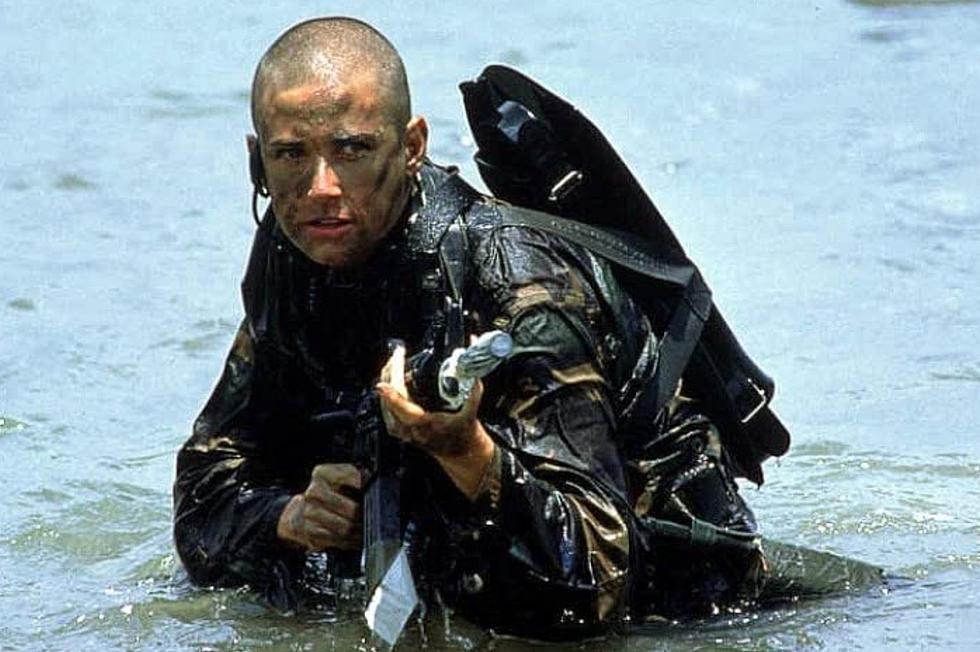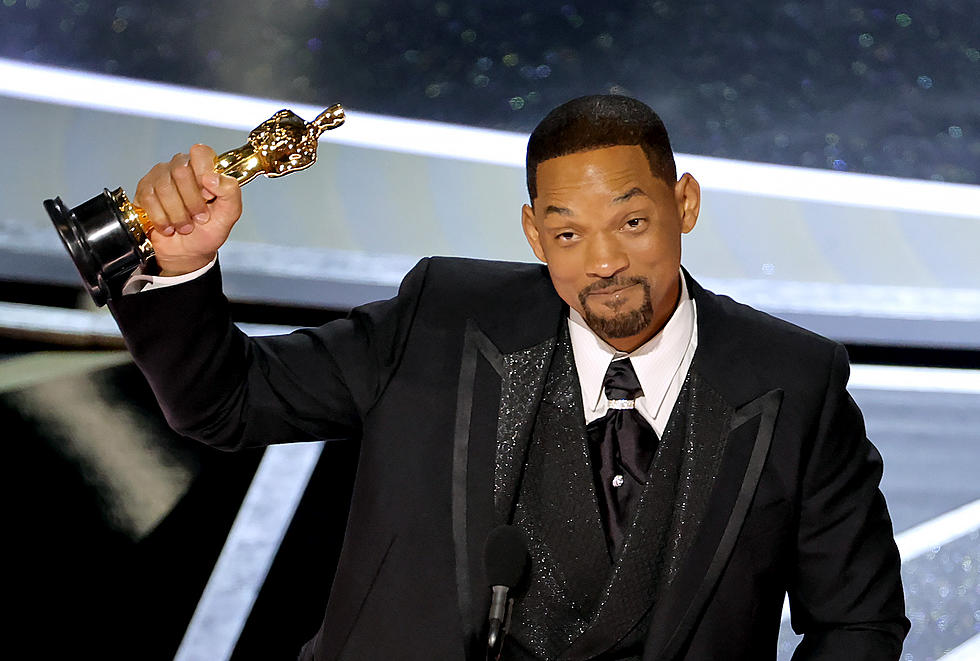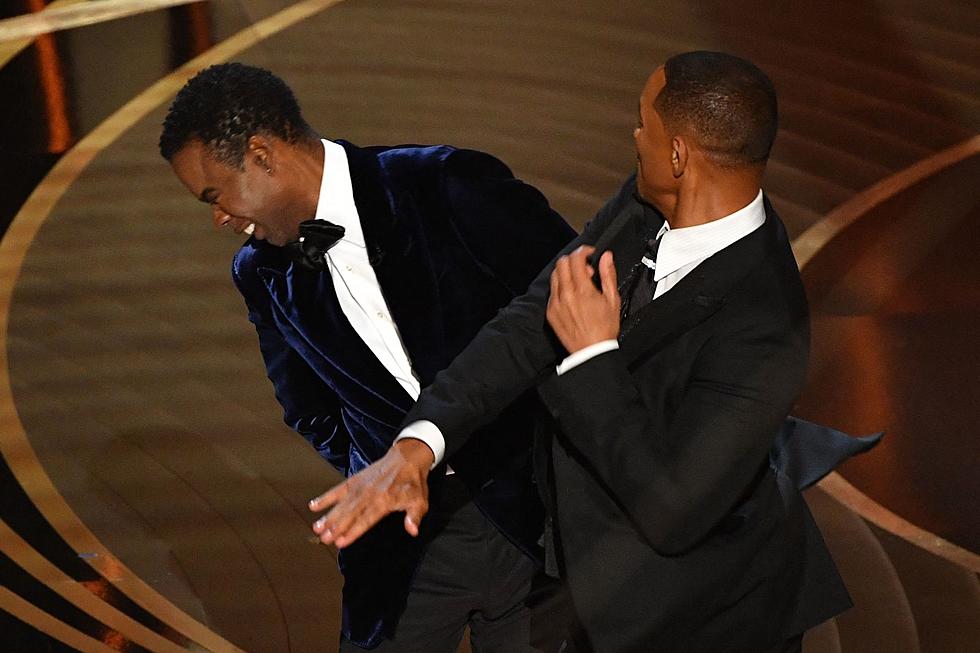
‘G.I. Jane’ Is Better Than a Bad Punchline
My first reaction to Chris Rock making a G.I. Jane joke at the Oscars about Jada Pinkett Smith’s hair was shock.
Not because I was offended on her behalf — I didn’t even know Pinkett Smith suffered from alopecia until later — but because I couldn’t believe a comedian as talented and as smart as Chris Rock would stoop to such a dated, hackneyed reference. G.I. Jane first opened in theaters almost 25 years ago, in August of 1997. (The 2022 Oscars inexplicably decided not to honor its silver anniversary alongside its endless tributes to The Godfather, Juno, Pulp Fiction, and every James Bond movie ever made.)
Invoking G.I. Jane to take a shot at a woman with a bald head is not exactly cutting-edge comedy in 2022. If I had to hazard a guess, I’d estimate that two-thirds of the people watching the Oscars didn’t even knew what the hell Chris Rock was talking about when he brought it up. Back in the late ’90s, of course, that sort of wisecrack about the film’s star, Demi Moore, and her authentically-shaved head were everywhere. It feels extreme to call Moore’s G.I. Jane haircut a scandal, but it certainly was a huge deal in the media.
When Moore appeared on The Late Show With David Letterman in the summer of 1996 while shooting G.I. Jane, for example, the audience reacted with audible surprise when she peeled off a bandana and revealed her shaved head. Letterman was intrigued too; he spent the next minute of the interview vigorously rubbing Moore’s head and quipping “don’t take this the wrong way but you look like a guy I went to high school with.“
People loved making fun of Moore and G.I. Jane. (The Razzies even gave Demi Moore their award for the Worst Actress of 1997 over the likes of Sandra Bullock in Speed 2 and Fran Drescher in The Beautician and the Beast.) Maybe Moore made a compelling target because she was pivoting from a string of erotic thrillers like Striptease, Disclosure, and Indecent Proposal and she didn’t seem like the type to play a military hero. Probably G.I. Jane’s subject matter, the integration of women into the U.S. Military and the question of whether both genders were equally qualified to serve in combat, had something to do with it too.
Whatever the reason, while G.I. Jane got okay reviews (it scored a 50 percent on Rotten Tomatoes) and was the #1 movie in America the weekend in opened in theaters, in the minds of the public at large the film was basically just a bad punchline — and enough of one that it was still Chris Rock’s go-to reference for a bald woman joke 25 years later.
That’s unfortunate, because Moore’s haircut is really just a small facet of her strong, convincing performance in the film. (The Razzies, as usual, got this one completely wrong.) She plays Lt. Jordan O’Neil, a dedicated Naval officer who becomes a pawn of several politicians battling for control of the military. During a conformation hearing for the new Secretary of the Navy, a female U.S. Senator (Anne Bancroft) publicly complains about the lack of gender equality in the Armed Forces. Behind the scenes, she uses the controversy to get the military to agree to a handful of test cases that would determine whether women are physically and mentally qualified to fully integrate into the Navy.
Frustrated by her inability to advance her career in the military because of her lack of combat experience, O’Neil agrees to serve as one of the senator’s test subjects, and enters the brutal and hyper-competitive training program for Navy SEALs. She is initially an object of mockery and scorn by many of her peers, and even a few of her superiors. But little by little, O’Neil wins over her teammates as well as the Master Chief of the school, Jack Urgayle (played by Viggo Mortensen in a performance that suggests what it might look like if Christopher Walken imitated R. Lee Ermey).
G.I. Jane was directed by Ridley Scott, who seems to have taken more than a few cues from his brother Tony in conceptualizing the movie. Essentially, G.I. Jane is the other Scott brother’s version of Top Gun; a tale of brotherhood and intrigue inside a cutthroat military training facility. Many of G.I. Jane’s shots of combat are eerily reminiscent of Top Gun and the late Tony Scott’s gauzy wartime visuals. (Both movies also end with the heroic cadets drafted into legitimate combat for an explosive action climax.)
G.I. Jane’s feminist material is important — and for that reason it would make a good choice for a double feature with Scott’s Thelma and Louise or The Last Duel — but it’s ultimately less central to the movie than Scott’s depiction of the grueling realities of Navy SEAL training. Filmed mostly at night in the midst of torrential downpours, these sequences make O’Neal’s prep for SEAL work look like absolute hell on earth. Forget the abuse from sexist peers or commanding officers; no man or woman alive would want to subject themselves to the officially sanctioned parts of SEAL training, which includes waterboarding and other forms of simulated torture.
Scott might actually emphasize the horrifying training sequences a little too much. The scenes between Moore and Bancroft, and between Bancroft’s character and various other Washington power players, are interesting, and so is O’Neal’s drive to prove herself. But once she gets into the swing of competing with her fellow SEAL recruits (including a young Morris Chestnut and Jim Caviezel), the movie sort of loses O’Neal’s inner life.
Scott might have wanted to show the way military schools strip people of their individuality until all that’s left is ruthless, single-minded killer instinct. But a compelling drama could use a little more focus on what that process is doing to its hero, and to her relationship with her hunky Naval officer boyfriend, played by Jason Beghe, who mostly exists in the film to confirm to her bosses that O’Neal’s not a lesbian (which would be bad PR for the military in 1997) and to provide an important piece of evidence to O’Neal at a crucial turning point in the story that she could never get on her own.
With so little of O’Neal’s emotions or motivations onscreen in its second half, G.I. Jane feels more like a formulaic military thriller than like a fully realized study of this character and a complex social issue. Still, the movie is well-directed and well-acted. It’s not a joke, and it doesn’t deserve its reputation as one. In all honesty, there are much worse films (and performances) to be compared to than this one.
The Worst Razzie Nominees in History

More From Fox Sports 1510










